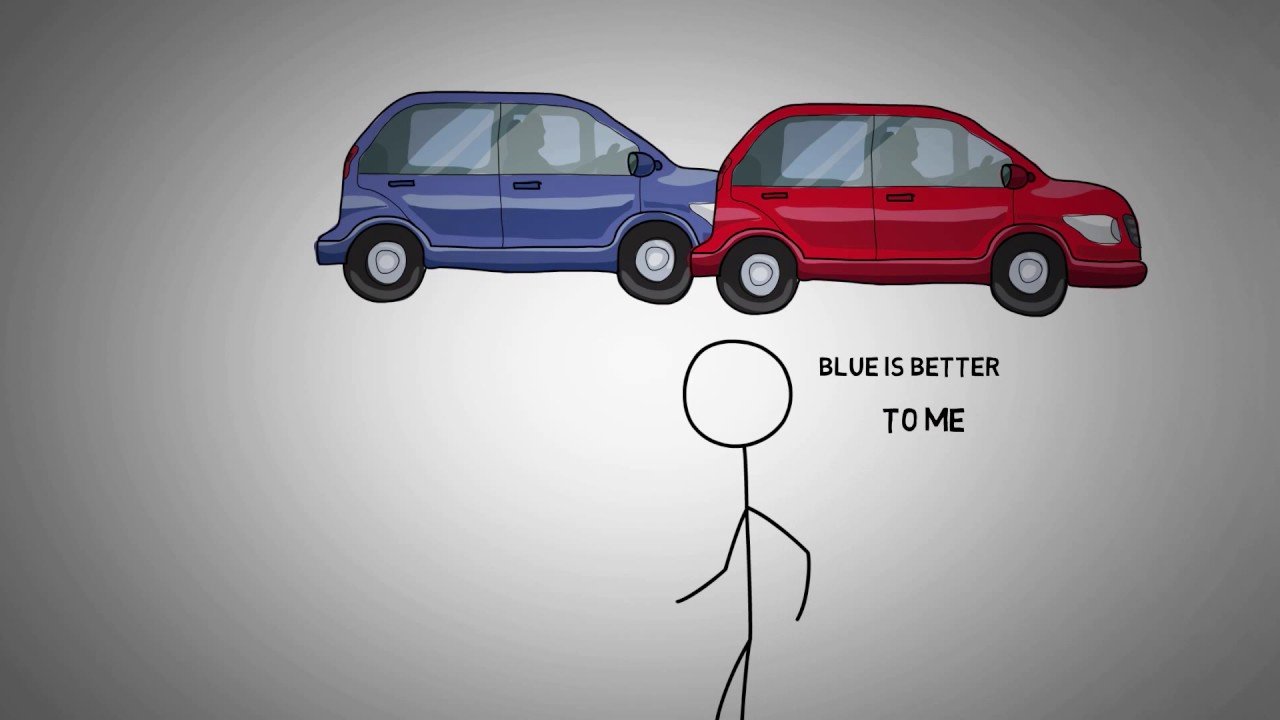In leadership, it’s not just about what we say; what truly matters is how others interpret and internalise our words and actions. Similarly, how we perceive others, based on ingrained assumptions can heavily influence our decisions and interactions. For example, consider a workplace scenario involving diversity bias. A woman of colour applying for a leadership position might be overlooked because decision-makers unconsciously associate leadership qualities with traits they've historically observed in male leaders from similar cultural backgrounds. Despite her strong qualifications, the cognitive dissonance between their stereotype of a "leader" and her identity as a candidate may prevent them from recognising her potential.
This highlights why it's essential to challenge our biases and broaden our perspectives to ensure fairer, more effective leadership practices. How are you dealing with your biases?
Give people space
I’m rarely the smartest person in the room, nor the best looking or the funniest. So, I just say what I need to and then step back, making space for others. My goal is to amplify the voices of those who have been marginalised or pushed aside. While I do care about how I’m perceived, I’m far more concerned about my purpose. On one hand, I want to give a voice to important issues. and on the other, I don’t want the focus to be on me. I hope my work continually challenges the stereotypes and biases about people who look like me.
How to influence perception?
Positioning plays a crucial role in defining how a product stands out in the market by delivering specific value to a well-defined group of customers. I think it's essentially about creating a distinct place in the consumer's mind where they perceive the product as uniquely addressing their needs or desires. Starting a conversation with a customer by discussing product positioning is strategic because it sets the stage for understanding the product's relevance and differentiation. By shaping the consumer's perception and expectations, product positioning provides context that answers fundamental questions:
– What is the product?
– What does it offer?
– And why should the customer care?
This context is essential for customers to grasp the value proposition and make informed decisions about whether the product aligns with their needs and preferences.
Communication is the key
If you can control perception, then you can control behaviour. If you can dominate the narrative so people are only hearing one side of the story or one version of the story then you are going to dictate the perceptions of vast numbers of people, especially if they haven’t had any other angle to consider. This is so easy when you are addressing a population who do not question anything:
Q: How do you know that?
A: I saw it on the news
Q: How did they know that?
““In times of change the learners will inherit the world, while the knowers will be beautifully equipped for a world that no longer exists.” ”
If you fix the outcomes
Image c/o Linkedin
What are the habits behind the outcome?
When you focus on improving the outcomes you desire, your habits will naturally fall into place. I think the way you perceive yourself has a significant impact on your daily actions. As you encounter different experiences in life, the lens through which you view yourself affects how you interpret and respond to them. For a habit to truly endure over time, it must align with your core identity. When your actions are in harmony with your internal beliefs and values, you're more likely to sustain those habits in the long run. In essence, congruence between your actions and your identity plays a crucial role in fostering lasting habits.
Emotion drives behaviour
Smart people often change their minds. I think that it’s unwise to assume that objective reality holds significant importance in human behaviour. What truly influences people’s actions is the interplay between objective entity, the contextual framework within which it’s perceived, the perception of that context, the emotions or significance evoked by that perception, and ultimately, the emotions that propel behaviour. Unlike the orderly mapping observed in physics, human behaviour entails a convoluted process involving four or five intermediate stages, making it anything but neat.
““In anything at all, perfection is finally attained not when there is no longer anything to add, but when there is no longer anything to take away.””
Do we add value objectively?
As humans we don’t perceive or value things objectively, as the context of something determines our reaction to it. Therefore, if you want to make something more valuable you can either change the thing itself or you can change the content. I think that there are only two ways to produce a valuable product innovation and marketing.
1. Find out what people really want and then work out a clever way to make it.
2. Find out something you can make and find out a way to make people want it.
Perceptions of truth are relative
People will only ever understand you from their level of perception, therefore, their perception is real, and the truth is not or that it is subjective. The truth refers to objective facts and realities that exist independently of our perceptions or beliefs about them. While different people may have different perspectives and interpretations of the truth, the truth itself remains constant and unchanging. I think it’s important to recognise that our perceptions and interpretations are limited by our own experiences and biases, and that they many not always align with the objective truth. However, when we seek to understand and analyse, we will come closer to understanding the truth and making informed decisions based on it.
What I perceive is really out there
Affirmations without discipline is the beginning of delusion. Character is the ability to follow through on a resolution after the enthusiasm of which the resolution was made has passed. The truth will set you free to correct old errors in judgement and will help you to set up new and easier disciplines to turn wrong into right. To turn lack into prosperity and turn skepticism into faith. To turn wrong into right we must speak the truth because only the truth will set us free, I mean, free to correct errors in judgement.
We all have unique challenges, whether it’s family or personal problems, financial issues, or business problems, we all have them at one stage or another. Errors in judgement are subtle and usually don’t show their results immediately. The formula for failure is a few errors in judgement repeated every day on a continuous basis. When you continue to repeat your errors in judgment over a period then you’ll be way off course.
““Men can be divided into two groups: One that goes ahead and achieves something and one that comes after and criticises.””
The looking-glass self concept
A lot of what we experience in the world today is challenge because of how we see ourselves. According to sociologist Charles Horton Cooley, individuals develop their concept of self by observing how they are perceived by others, a concept Cooley coined as the “looking-glass self.” I agree that behavior and self esteem are dictated by a person's predictions of how they’ll be perceived by others. In other words, we live in a perception of a perception of ourselves, for example, if I think that you think that I am smart, then I am smart. And in contrast, if I think that you think that I am dumb, then I think that I am dumb.
The challenge is we are basing what we think about ourselves on what we think someone thinks of us. And the greatest challenge with this is how do you have any idea if what you think someone thinks about you is even true. This is where identity struggles, we start pursuing things in life because we think other people value them. Go to the root of the issue, it’s easy to say just take two of these a day or maybe you just need to do this, but when you look at it from the root perspective we have look at where our challenges arise.
““The challenge today is I’m not what I think I am. I’m not what you think I am. I am what I think you think I am.””
Awakening slowly
Heading into a new year is a great time to take stock of where you've been and where you want to go. Studies show that self-awareness is a foundation for better decision-making, higher performance, and more effective, authentic leadership. As we grow spiritually, raising our consciousness, many of our painful experiences are simply growing pains. Everyone has perception, for example, when I see a tree, I see its beauty, the colours of the leaves, its shape, how it fits into the landscape. Another person frets because the tree is blocking their sea view. Each person’s perception is created from experiences, education, and belief systems. In this sense, we each live in our own world, defined by our perception and as we strive to improve our circumstances, we must strive to improve the world.
““We cannot teach people anything; we can only help them discover it within themselves.””
Our beliefs and opinions
Perception refers to our sensory experience of the world, in other words, perception is based on our viewpoint, experience, and behaviours from where we stand, and sometimes that isn’t always accurate. How we see things around us, no matter how they actually are, become what's real to us and our perception of reality is limited by our five senses; touch, sight, sound, smell, and taste. And it is through this experience that we gain information about the environment around us, and I think this shapes our beliefs and opinions.
The nod of approval
c/o Financial Times
Life is short and you don’t have time to figure everything out by yourself. Now if you could just align your work with your why.
· Have you taken full advantage of the opportunities offered to you?
· Do you have habits that are destroying your health and well-being?
· Are there things that you could do that would make things around you better?
· Have you said what you need to say to your colleagues?
Contact me via e-mail for mentoring or coaching sessions. Another voice, another opinion, this could be the catalyst for the change you have been seeking to make.
“Dependent people need others to get what they want. Independent people can get what they want through their own effort. Interdependent people combine their own efforts with the efforts of others to achieve their greatest success.”
Our perception is our reality
Far too often we look at a group or team of people that are not succeeding and conclude that they are not capable of success. Saying the problems they face are too powerful, too irate and too ingrained to do anything about. We can make a profound difference in how well people turn out if we choose to pay attention to the constraints imposed by poverty, stupidity and attitude.
If our perception is much worse than the reality, why are we trying to change the reality? What we need to do is improve our storytelling and tell people about the reality. Sometimes our perception is faulty and we cannot really tell the difference between the quality and the environmental reasoning. I think that when we change our frame of reference and perceived value, the actual value will be completely transformed.















